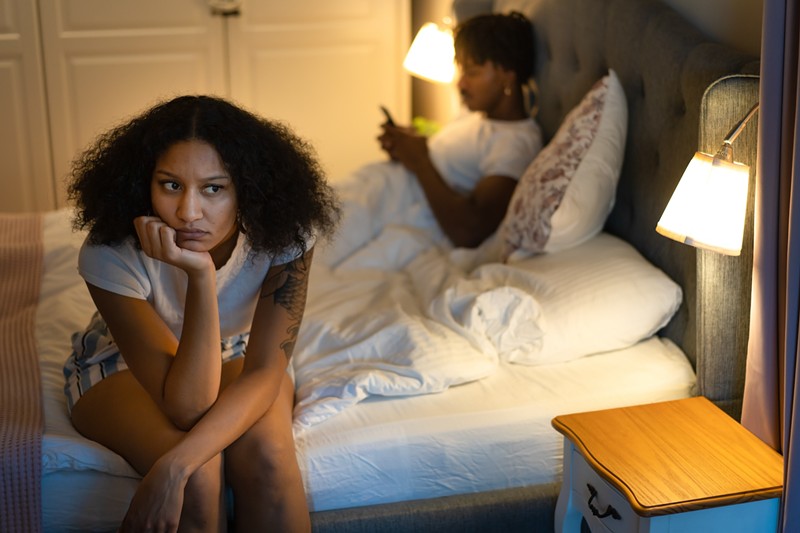The envy was palpable. This friend clearly had a unicorn marriage.
It wasn't that the rest of my friends were suffering through bad marriages; quite the opposite. They just weren't "doing it" like back in the old days. Surely, at the beginning of each of their relationships, their IUDs were working overtime, and the PDA was borderline cringey. But there's a perfectly scientific reason for why that changes over time.
According to a study by Helen Fisher from Rutgers University, the biology behind how we experience love can be divided into three stages: lust, attraction, and, finally, attachment. These stages are governed by different neurotransmitters in the brain. In other words, our brain chemistries literally change throughout the course of a romantic relationship. And while the primal need to hump like bunnies is strongest during the first two phases, the attachment stage can be stronger, deeper, and more stable.
It's not surprising that even the best relationships slide into dry spells, and, as the clichés go, it's incredibly common. It can happen to anyone, and it's nothing to be ashamed about. A Kinsey Institute study concluded that 25.8 percent of millennials, 10.5 percent of Gen Z, and 21.2 percent of Gen X report having sexual frustrations in their marriages.
That certainly doesn't mean that couples should sit back and watch their horny days slowly fade into the ether. I found another unicorn, Dr. Mindy DeSeta, a sex therapist who is an expert in relationships and sexual health, and she shared some helpful tips to get back on the grind.
Her advice is, first and foremost, to relax on the performance pressure because trouble in the bedroom is actually about so much more than just sex.
"Dry spells can happen any time after the 'honeymoon' phase has ended," she says. "Typically, this phase is about six months, but I'm seeing that number decrease, shortening the infatuation period of the relationship."
Why is this happening? She says that things like excessive phone use, work, video games, and going to bed at separate times can cause an emotional disconnect, which then triggers a decrease in physical intimacy. The key to getting back in action, therefore, is reconnecting emotionally.
Here are her tips for jumping back in the saddle:
Schedule Daily Dates
We're not talking dinner and wine — just 20 uninterrupted minutes a day of quality time. The conversation should be focused on learning more about your partner, asking about how their day was, and delving deeper into their emotional state. According to Dr. DeSeta, we are constantly evolving as people, and keeping up with your partner's growth is essential to maintaining intimacy and closeness.Develop Sexy Confidence
This is a solo activity, so find an area where you feel safe and allow your sexiness to flow from within. Have you ever noticed how when we're feeling ourselves, others are more drawn to us? That's the idea we are cultivating here. Dr. DeSeta recommends trying something different every day to ignite your inner sexy. That could include playing with erotic toys, wearing lingerie under your clothes, or experimenting with pole-dancing classes.Stop Having Sex
You heard me right. It might sound counterintuitive, but Dr. DeSeta recommends temporarily taking intercourse off the table. If lack of physical intimacy has been an issue, taking the pressure off while you reconnect in the above ways will level the playing field. But that doesn't mean you need to stop touching your partner altogether. While abstaining from the big deed, Dr. DeSeta says couples can work on extending foreplay and experimenting with other forms of erotic pleasure. Consider this your green flag to get kinky.Have the Sex Talk
Plan a time and make it a date, complete with romantic lighting, maybe a sexy candle or two, and aphrodisiac snacks. (No word if oysters really do the trick.) This is your time as a couple to talk about your individual pleasures and fantasies. Be open about what you'd like to explore together sexually.A little PSA before I let you go: Remember that it's incredibly common among couples of all age groups to experience sexual droughts. Dr. DeSeta says that when it comes to getting back on track, the best strategy starts with listening to your partner. "Sex is between the ears, not just the legs."
Good luck, and happy humping!













